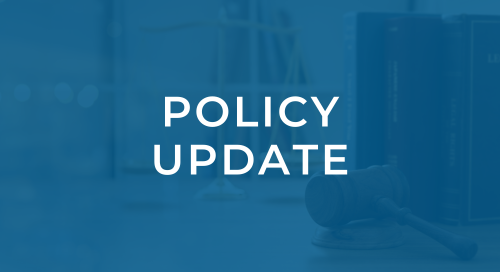
The Policy Team Grows
We are thrilled to welcome Rebecca Cooper and John Molera to the Policy team. Rebecca was previously at the National Academy for State Health Policy and John was at the Colorado Secretary of State’s Office. Both are joining the team as State Policy Senior Analysts and will continue to grow our influence in state-level advocacy and legislation. When you hear from Rebecca and John for the first time, please join us in welcoming them to the team.
Public Health Emergency and Telehealth Update
We expect the public health emergency to be renewed in April through July 13. The Secretary of HHS has stated that we would receive a 60-day warning before the PHE expires. Therefore, our next update on the PHE will be in the middle of May. The recently passed omnibus bill has some telehealth provisions that will extend all of the flexibilities for five months beyond the end of the PHE.
Congress has asked MedPAC, the Congressional advisory office, and the Office of the Inspector General to issue reports on telehealth by June 2023. It is likely that we will continue to get temporary extensions until then and permanent legislation will occur after the reports.
ACO REACH
Aledade has been conducting an analysis of the new ACO REACH model. As we learned with Direct Contracting, all things being equal, if you have established primary care relationships with Medicare beneficiaries then MSSP was designed for you and is the better program for you. Our updated analysis of REACH shows that for our standard savings assumptions of two percent improvement year over year, the payments to the ACO will be 275% more in MSSP by year 4 than they would be in ACO REACH.
Why may things not be equal? To close that large gap you have to assume that the ACO will achieve a higher savings rate in REACH than MSSP. Two main drivers of a higher rate could be differences in the starting benchmark and differences in performance. In 2019, we conducted an analysis that showed there were no substantial differences between Direct Contracting and MSSP. We are re-running that analysis to see how it survived the pandemic. For differences in performance, it really comes down to what innovations are undertaken using primary care capitation that will lower costs significantly beyond our standard two percent per year. 275% is a very high hurdle, but we are leaving no stone unturned to ensure every practice is in the best ACO model for them.
Medicare Advantage Rate Notice Released
Medicare Advantage plans will see an expected 8.5% increase in revenue in 2023. The pay increase is more than 0.5% higher than what CMS proposed in the Advance Notice and follows a historical trend of increased effective growth rates in the time between the notice to the final document. The rate bump accounts for additional plan expenses such as COVID-19-related costs and changes in utilization.
The increase is primarily due to a finalized 4.88% effective growth rate, slightly higher than the predicted 4.75% growth rate in the advance notice. The final notice also includes a 3.5% risk score trend that hasn’t been part of recent years’ rate calculations. CMS didn’t include the trend in 2022’s notice given the uncertainty around COVID-19.
In the Advance Notice, CMS had solicited feedback on what measurements it should pursue to improve health equity in MA and Part D star ratings, including the development of a health equity index. Another measure would assess whether plans are screening enrollees for social needs such as transportation or food insecurity; the agency is also considering developing a value-based care measure to capture arrangements MA organizations have with physician practices. Aledade’s comment letter to CMS covered these areas. The final notice did not contain any specific reforms but said it will take the feedback from commenters into consideration as the agency continues to explore ways to further drive health equity and high-quality care.
Thank you for everything you are doing and please stay safe.
